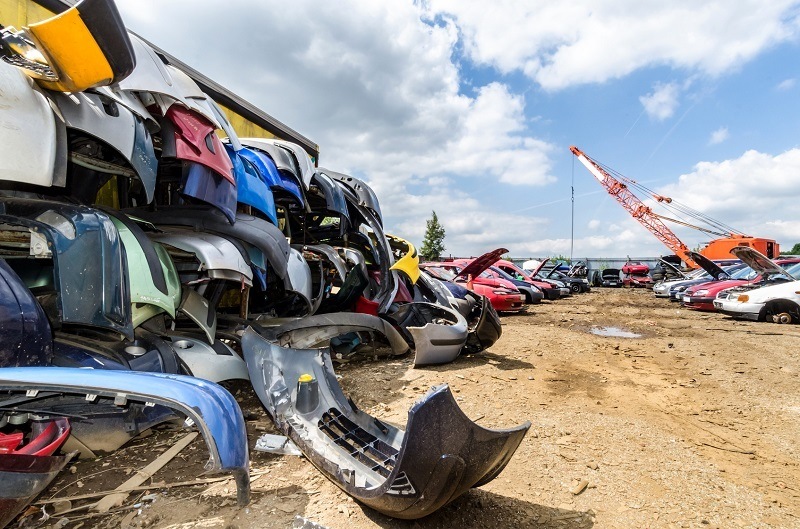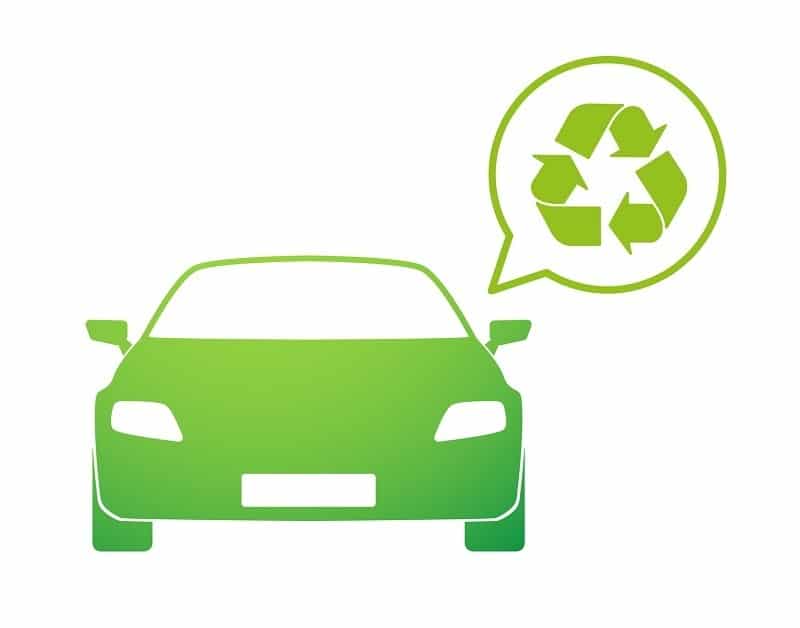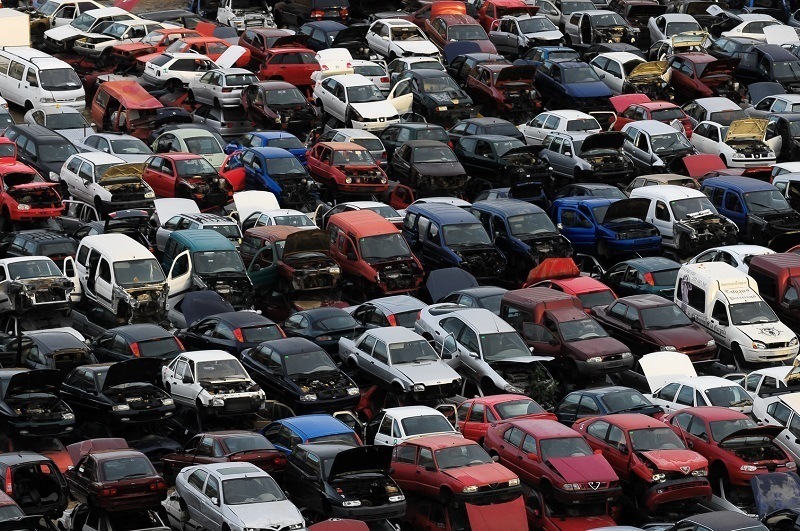As one of the world’s largest industries, automobile manufacturing contributes significantly to the global economy while also creating a lot of waste in the process. Automobile manufacturers are making great strides in creating cleaner, more environmentally-friendly vehicles, which helps cut down on the waste generated before, after, and while cars are on the road.
For wrecked, older, and end-of-life vehicles, the auto salvage industry plays an important role in keeping unnecessary materials out of landfills by properly disposing of and recycling materials from cars.
What is auto salvage?
Auto salvage is the practice of taking unwanted, used, wrecked, or junk vehicles stripping them of all usable parts and components, which are then refurbished, sold, or recycled.
This term applies to basically any vehicle taken off the road, whether it is due to age, after an accident, or mechanical problems. Typically, the people who buy salvage vehicles work with cash for cars companies, salvage facilities, or junkyards.
How do junkyards work?

At a salvage facility or junkyard, the salvage process begins with “pre-treatment,” which is the time before the car is disassembled and is drained of coolant, oil, fuel, and other fluids. This prevents leakage while the car is being further disassembled.
During this stage, the gas tank, tires, and battery are also removed. Fluids drained during pre-treatment can then be sold, recycled, or used in another vehicle. Depending on the gas tank’s condition and model, it can either be recycled as scrap metal or sold as a refurbished part. Tires can be retreaded and sold or used as fuel or ground rubber.
After these initial components are taken out of the vehicle, the remaining parts are evaluated, and the salvage yard or car owner must decide whether to repair, refurbish, and resell the parts. Everything from the engine parts to floor mats to window controls can be resold, as long as there is a demand for it. Otherwise, parts can be recycled the parts as scrap metal.
Depending on the facility, many junkyards will evaluate the parts and leave them intact inside the vehicle, allowing customers to pull their own parts and do the manual labor. Other companies will pull the parts themselves, clean and refurbish the components, and then sell the parts online or in a retail location.
Once all of the usable parts are stripped from the vehicle and the interior fixtures (seats, carpets, console, and so on) are removed, the body and frame can be crushed and recycled as well.
Who does auto salvage work best for?

Generally, auto recycling is beneficial for anyone involved, whether you are donating your car to charity, selling it to a junkyard, or scrapping yourself.
It helps reduce the impact vehicles have on the environment, saves people money when shopping for replacement parts, and plays a role in the multi-billion dollar global automobile industry. In addition, it lowers the amount of energy needed to create new goods and materials, most notably steel.
While salvaging a vehicle may be environmentally beneficial, it’s not always profitable for everyone. A variety of factors play into how much a person can make off of salvaging their car. These include:
- Year, make, model
- Condition of vehicle
- If the vehicle runs or not
- Demand for parts
- Price of scrap
For example, say you own two cars, and you’re looking to sell both of them: a 1990 Toyota Camry and a 2007 Toyota Camry. Both cars run (although the ’90 doesn’t run well) and have minimal damage to the bodies. The ’90 has close to 250,000 miles on it; the ’07 has less than 100,000. The ’07 has brand new tires on it. You can’t remember when you bought the tires for the ’90.
You call up your local junkyard or cash for cars company to get some quotes, and after asking a few questions about your car, you’re given a quote of $175 for the ’90 Camry and $225 for the ’07. You’re shocked by the appraisal.
There is a 17 year age difference between the cars, yet the yard values the vehicles at $50 apart. You know for a fact that you could fetch a few thousand, if not more, for the 2007 at a dealership or private sale.
So why are both cars valued so close together? The answer is simple: the ’90 is being valued as pure scrap and is appraised almost solely for its weight. Even though the ’07 is in working order, has brand new tires, and has less than 100,000 miles on it, it too is being appraised for its weight, and the yard is almost completely disregarding the value of its parts in its appraisal to you.
You may think the appraiser is being sneaky in their tactics, but in truth, they’re just giving you a sign that you’re better off selling the newer vehicle as a used car and the older one through a company such as Wheelzy or Peddle, which will buy your junk car for a reasonable amount.
Okay, so should I salvage my car or not?

Basically, if you’re looking to get rid of an operable, perfectly functioning vehicle, calling a junkyard is not your best bet. But if you own a clunker or a car that has a blown head gasket or another repair that would cost more to fix than the car is worth, salvaging your car is probably the easiest way to make some extra cash off of your junk while clearing up space in your garage or on your lawn.
As a rule of thumb, if your car is more than 10 years old, costs more to fix than it’s worth, doesn’t run, or has been in an accident, it might be a good candidate to head to a salvage yard.
So how do I sell my junk car?
If you’ve decided to sell your car for parts or to a junkyard, we actually recommend checking out Wheelzy and Peddle, both of which make it very fast, easy, and painless to get rid of your old car for more money than you might get through a junkyard.
You simply get a quote online or over the phone, decide which one is the best offer, and that’s it. They come to pick your car up, give you the cash, and then you sit back down on the couch to continue your Netflix binge. We had a good experience with Wheelzy (read our review here) and found that they offer a fair value for an old car.
If, for some reason, you do decide to sell to a junkyard, just Google “junkyard near me” and give the first few results a call, tell them which car you have and its condition. They should be able to give you a quote over the phone. If the car doesn’t drive, any good junkyard should be able to come to tow it for you. If not, you might have to arrange that yourself.

